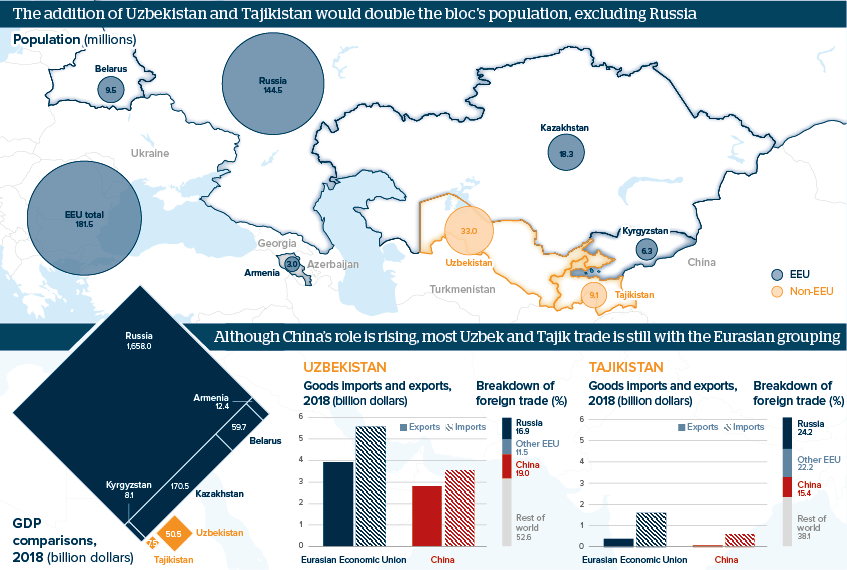Uzbekistan would add extra weight to Eurasian bloc
Moscow is keen to entice Central Asia’s most populous state into its regional trading structure
Source: State statistics agencies in Uzbekistan and Tajikistan; Eurasian Economic Union; Central Asian Analytical Network; World Bank; Oxford Analytica calculations
Outlook
Uzbekistan is resuming its role as a central player in Central Asia. It has by far the largest population even if its GDP lags behind Kazakhstan’s, so Russia is understandably interested in bringing it into the Eurasian Economic Union (EEU). This would boost a grouping wounded from the outset by Ukraine’s absence.
Uzbekistan still trades more with EEU members than with China, and membership would improve conditions for its expatriate workers in Russia. Both factors are also true of Tajikistan, which has so far held off joining the bloc. Uzbekistan’s political elite is divided: the downsides of membership include being bound to Russia’s economic fortunes and foreign policy agenda.
Impacts
- Russia clearly envisions Uzbekistan as a full EEU member, not an associate, remote partner like Serbia or Singapore.
- Uzbekistan is leading a separate initiative to create an exclusively Central Asian forum that delineates a stronger unitary identity.
- Uzbek caution will make any accession process slow; the government has long preferred bilateral to multilateral ties.
- The EEU’s expansion efforts may be outpaced by rapidly growing Chinese investment, loans and trade.
See also
- Kazakhstan reliant on Russia but not compliant - Jun 14, 2021
- China will dominate in multi-vector Uzbek outreach - Dec 10, 2020
- Risks and opportunities 2020: Russia and Eurasia - Jan 17, 2020
- Uzbek entry to Eurasian bloc will be slow and halting - Oct 22, 2019
- More graphic analysis
